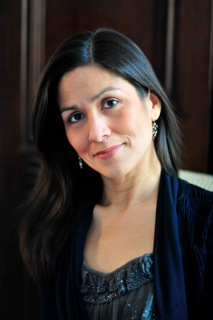 Before writing your novels, you studied, wrote and published poetry. How does your poetry and your poetic sense now inform your prose?
Before writing your novels, you studied, wrote and published poetry. How does your poetry and your poetic sense now inform your prose?
What is most obvious--sometimes painfully obvious!--to me is how it has influenced my process. When it comes to the actual writing part of writing a novel, my method is pretty much the same as it was when I wrote poems. I write a sentence and tinker or wrestle with it until it feels right to me, and then I write another sentence and do the same thing. There's a little, magical thrill when you get a sentence just right, but in general, it's a slow and somewhat impractical way to write 400 pages. No matter how often I try, I can't put in placeholders or jump ahead or just get the story out there in a rough form and then go back and fine-tune, even though these tactics make so much sense to me. Another way I feel the influence of poetry is that I am very aware of the words as sounds, apart from their meanings. If a paragraph isn't working, I look first at the music of it--the rhythm, the ways the vowel and consonant sounds are bouncing off each other. I've been known to bonk myself on the forehead and say things like, "Ack! No wonder it's awful! Look at all those short vowels in a row!"
One of the most intriguing relationships you explore in Falling Together is that of friendship formed in college. The novel illustrates beautifully how intense and seemingly unbreakable these bonds can feel at the time they form. Do you think these kinds of friendships can sustain into adulthood?
Not usually, I don't think. Partly because college is a relatively uncluttered place; there's just not much to focus beyond studying and relationships, so these two things get intense, undiluted attention. You leave your first family and get the chance to make a new one out of friends. Also, I think it's just an age of wanting pretty desperately to know people and to be known. Self-discovery and connection are everything, and all those late nights are so ripe for conversation and revelation. But after college, eventually, there are so many other things that both sustain us and demand our attention. And people just change. I think the reason Pen, Will and Cat's friendship falls apart a few years after college ends is that they don't know how to let it change, to let each other change. Will takes Pen to task at one point, and tells her, "We were three people. We weren't a religion." And he's justified in accusing her of elevating their friendship in this way. But she's not the only one who does it. I think when it comes to the relationships that have truly saved us at one point in our lives, a lot of us resist change.
Falling Together also takes a long and careful look at fatherhood; all of the characters in the novel have fathers who are absent for different reasons. Can you explain how this theme developed for you?
Themes always sneak up on me. You know, what's interesting is that until Charlotte points out to Will that he, Pen and Cat have all lost their fathers in some way, I hadn't really looked that fact squarely in the face. It wasn't at all something I had consciously planned ahead of time. In fact, when I first started work on the book, I didn't even know Pen's father had died. What I knew was that I had this character who was very sad. At first, I thought her sadness grew only out of the loss of her friendship, but I was dogged by the thought that, as significant as the loss of Cat and Will was for her, it wasn't enough to account for the depth of her grief. And then one day on the elliptical trainer at the Y, I understood that Pen had been incredibly close to her father and that he had died quite suddenly. Once I knew that, I could really start writing. In retrospect, I can see how the loss of their fathers unifies the characters and also reveals aspects of their personalities we wouldn't otherwise have seen. Even Will, who believes he hates his father, has to figure out who he is without him in his life, and it isn't easy.
How did the mystery at the heart of Falling Together develop for you? Was there ever a point during the writing when you felt the resolution might go another way or did you know the course from the beginning?
I can't start a book until I have a good, strong handle on the characters. I live with them inside my head for a long time, months, before I write anything down. I collect details about them, often seemingly trivial details that, for me, say something essential about who they are. Also, I can't start writing until I know a few basic things about the plot, real bare bones stuff. And all the while, on some level, I accept that what I think I know at the beginning about character and plot may very well be wrong or only very partial. Books have a way of choosing their own shape, and you have to respect that, even if it means scrapping a lot of what you thought you had planned. While I realize that there is one clear mystery going on in the book, I felt like there were many, and maybe the most important one in my mind was: How would Pen make peace with her grief? Or would she at all? Until I was well into the last quarter of the book, the mysteries still felt very mysterious to me. But in the end, one of the best things about writing is the way your own story can surprise you.
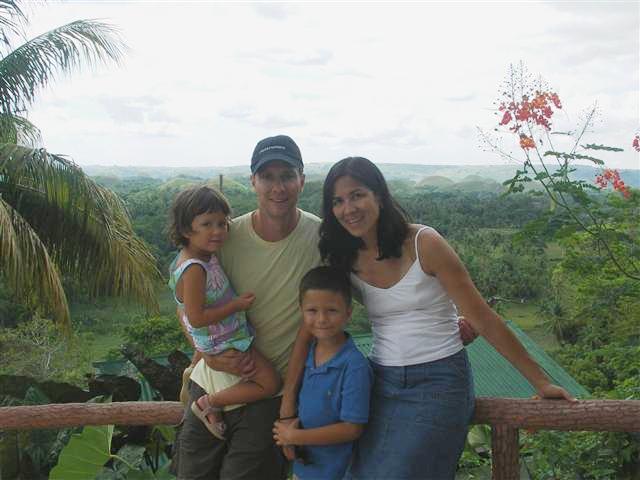 A good portion of Falling Together takes place in the Philippines, offering readers a lush, vivid and complex description of the place and its people. Can you tell us about how and why you chose this setting?
A good portion of Falling Together takes place in the Philippines, offering readers a lush, vivid and complex description of the place and its people. Can you tell us about how and why you chose this setting?
I can't tell you how grateful and thrilled I was to be able to write about the Philippines. My dad grew up in Cebu City and lived there until he was about 30, when he came to the U.S. for his medical residency. My sister and I were born here, and it wasn't until I was in my 20s that I traveled to Cebu for the first time. Since then, though, I've been back many times. My parents ended up moving there after my dad retired, so we take the kids every other year, and every time we go, the place becomes a little bit more a part of my internal landscape, the one I carry around with me, my own private home. It's a country of extremes: extreme gorgeousness, rampant blossoming, warm generosity, fruit and bread and fish so delicious you wish you could eat nothing else for the rest of your life, and also extreme poverty, heartbreaking poverty. Neither of the other two books led me to write about the Philippines, but since this one did, I wanted so much to do it justice, to have my language glow and sing and snap it all into being. That's probably not possible, but I loved trying. I hope people read the book and think: "Okay, I have to go there!"
There is a strong sense of optimism present in all of your work. How important is it to you that a novel have a happy ending? Can you define for us what makes an ending happy?
I have always found happiness, in life and in art, to be as potentially interesting and complicated and multilayered as sadness. As a person and writer, I'm inclined toward the upswing ending, not an ending wherein all problems are resolved and everyone gets everything they want, but one that leans hard in the direction of hope. It's probably hardwiring; I am a hopeful person in general. As a reader, I likely have a bias toward this kind of ending, as well, although certainly I love lots of books that could be called tragic. But even in these books, there is character growth. I have trouble with books in which characters are mostly static. And growth is in and of itself a hopeful thing. For instance, I love Henry James, and while most of his books end with the characters not getting what they want, the characters have a clearer sense of who they are and what they love, and that is a beautiful thing to have.






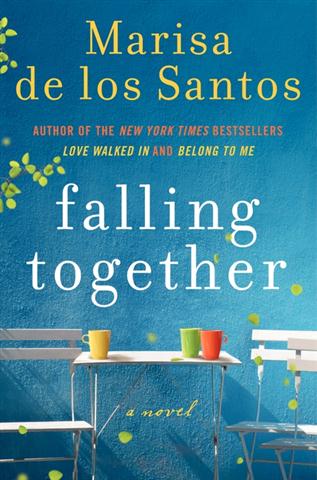


 Before writing your novels, you studied, wrote and published poetry. How does your poetry and your poetic sense now inform your prose?
Before writing your novels, you studied, wrote and published poetry. How does your poetry and your poetic sense now inform your prose? A good portion of Falling Together takes place in the Philippines, offering readers a lush, vivid and complex description of the place and its people. Can you tell us about how and why you chose this setting?
A good portion of Falling Together takes place in the Philippines, offering readers a lush, vivid and complex description of the place and its people. Can you tell us about how and why you chose this setting? Pen eats this for breakfast in the Philippines, as do I--greedily--every time I go there, every chance I get! We call it "sticky rice" and serve it with a mango sliced in half (discard the seed only after you've gnawed all the mango flesh off of it) and eaten, Filipino-style, with a spoon. Most Filipino breakfasts also include a kind of bittersweet chocolate called sikwate, but you can substitute regular hot chocolate. Cebu has the best mangoes in the world, but I have never found them in grocery stores here. Try to get the small, kidney-shaped yellow ones, instead of the larger red and gold ones.
Pen eats this for breakfast in the Philippines, as do I--greedily--every time I go there, every chance I get! We call it "sticky rice" and serve it with a mango sliced in half (discard the seed only after you've gnawed all the mango flesh off of it) and eaten, Filipino-style, with a spoon. Most Filipino breakfasts also include a kind of bittersweet chocolate called sikwate, but you can substitute regular hot chocolate. Cebu has the best mangoes in the world, but I have never found them in grocery stores here. Try to get the small, kidney-shaped yellow ones, instead of the larger red and gold ones.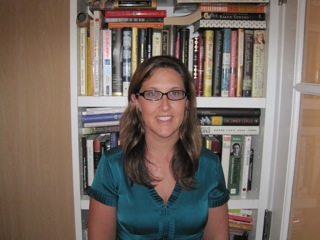 Shelf Awareness: How would you classify Marisa's work in terms of genre? Do you think readers have certain expectations of this genre and how does that affect the way you work with Marisa?
Shelf Awareness: How would you classify Marisa's work in terms of genre? Do you think readers have certain expectations of this genre and how does that affect the way you work with Marisa?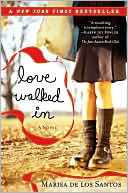 I've been Marisa's editor since her first novel, Love Walked In, and that book was acquired on a full manuscript. In that case, I knew the beginning, the middle and end when we started working together on that book. Since then, we've worked together on pages, chapters, half a manuscript or more. What remains the same is that by the time Marisa sends work to me, she has polished the language so that the images and observations--the line-by-line--is breath-taking. The poet in her is evident even in draft. It's a great treat for me to watch her stories develop, whether I'm reading work in progress or we are having a conversation about where a book is headed. When you read in progress though, you don't discover what comes next when you turn the page, it can be days or weeks before you know the answer to a cliff-hanger.
I've been Marisa's editor since her first novel, Love Walked In, and that book was acquired on a full manuscript. In that case, I knew the beginning, the middle and end when we started working together on that book. Since then, we've worked together on pages, chapters, half a manuscript or more. What remains the same is that by the time Marisa sends work to me, she has polished the language so that the images and observations--the line-by-line--is breath-taking. The poet in her is evident even in draft. It's a great treat for me to watch her stories develop, whether I'm reading work in progress or we are having a conversation about where a book is headed. When you read in progress though, you don't discover what comes next when you turn the page, it can be days or weeks before you know the answer to a cliff-hanger.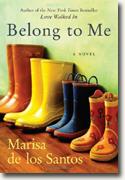 Marisa writes with an amazing emotional precision. Her ability to create fully rounded characters that engage us from the start of a book combined with her exquisite and unique description of home are what have won her so many fans. Long before Marisa sends in pages, and I suspect long before she even starts to type, she begins to get to know her characters. Often when we talk in the early days of a book, she'll drop hints about a character or two so for me, it's like talking with a dear friend who then tells you about a new pal she's met. The Philippines is a very special place for Marisa, and from the start the beauty and the warmth of the people and place were on the page.
Marisa writes with an amazing emotional precision. Her ability to create fully rounded characters that engage us from the start of a book combined with her exquisite and unique description of home are what have won her so many fans. Long before Marisa sends in pages, and I suspect long before she even starts to type, she begins to get to know her characters. Often when we talk in the early days of a book, she'll drop hints about a character or two so for me, it's like talking with a dear friend who then tells you about a new pal she's met. The Philippines is a very special place for Marisa, and from the start the beauty and the warmth of the people and place were on the page.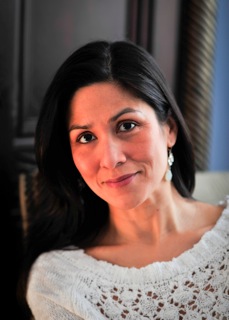 The child of a Filipino father and an Anglo-American mother, Marisa de los Santos was born in Baltimore and grew up in Northern Virginia. She spent many years as a poet before she began, quite suddenly, to hear a voice in her head, which turned out to be that of Cornelia Brown, the protagonist of her first novel, the New York Times bestseller Love Walked In. Now hopelessly addicted to fiction-writing, Marisa went on to write another novel, Belong to Me, also a bestseller. With her latest novel, Falling Together (William Morrow, October 4, 2011), Marisa got the chance to write about the Philippines, which made her very happy. She lives in Wilmington, Del., with her husband, David Teague, and their two children.
The child of a Filipino father and an Anglo-American mother, Marisa de los Santos was born in Baltimore and grew up in Northern Virginia. She spent many years as a poet before she began, quite suddenly, to hear a voice in her head, which turned out to be that of Cornelia Brown, the protagonist of her first novel, the New York Times bestseller Love Walked In. Now hopelessly addicted to fiction-writing, Marisa went on to write another novel, Belong to Me, also a bestseller. With her latest novel, Falling Together (William Morrow, October 4, 2011), Marisa got the chance to write about the Philippines, which made her very happy. She lives in Wilmington, Del., with her husband, David Teague, and their two children.